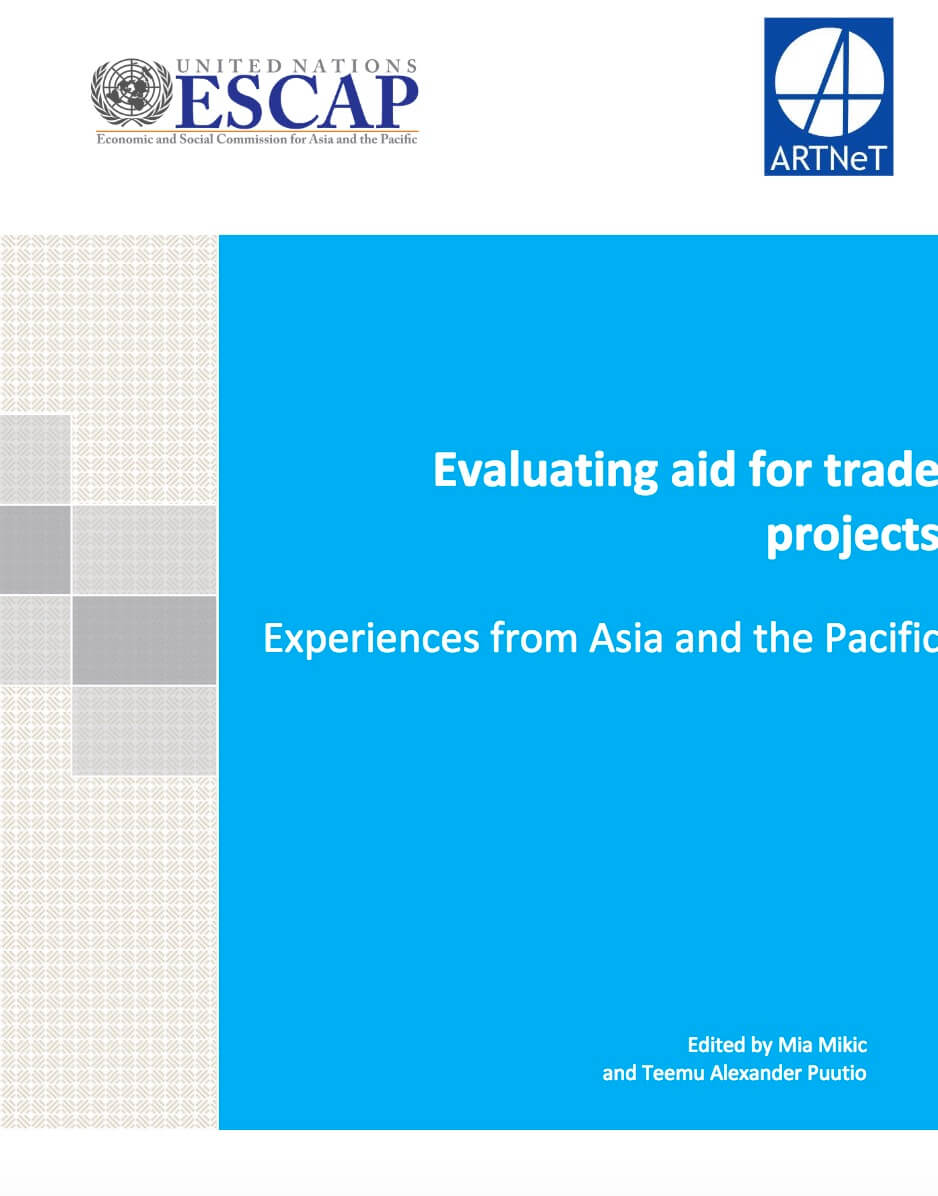Evaluating aid for trade projects: Experiences from Asia and the Pacific

ESCAP’s support for the project was applied through the establishment of a framework for evaluating project - level details of Aid for Trade projects based on which external consultants analyzed several individual projects in Bangladesh, Fiji, the Lao People’s Democratic Republic, Nepal, Sri Lanka and Viet Nam.
In each of the countries mentioned above, Aid for Trade projects were selected for further analysis and evaluation in order to ascertain their impact, effectiveness, efficiency, relevance vis - à - vis trade objectives and sustainability. This analysis was conducted against a backdrop marked by growing concern for the optimal allocation of aid resources in a post - economic crisis world, where sources of official development assistance were becoming unstable and unpredictable or were decreasing.
While each project selected for further analysis warrants its own findings and conclusions, several universal features were highlighted by the researchers. First, the problem of transparency in project documents as well as access to, and existence of relevant, reliable and clear data were encountered by all teams in all the countries. Second, due to the wide range of projects and sectors that Aid for Trade can target, the research teams had to work around categorization and demarcation issues that undoubtedly will continue to hinder effective research and accountability of Aid for Trade expenditure in the future. Third, the complexity of trade and investment - related goals and objectives that Aid for Trade projects target often means that attributing positive or negative changes to the intervention at hand is often all but impossible. Thus, evaluation of individual projects can easily lead to false conclusions of success or failure, greatly hindering the international community’s capability to adjust its Aid for Trade interventions according to empirical findings. Indeed, the whole gamut of research commissioned by ESCAP confirms the often quoted fact that Aid for Trade research at the micro level struggles to go beyond one - off examples. However, in the cur rent environment exemplified by a dearth of aggregated micro - level data on Aid for Trade projects, even the simplest examples will support global inquiries into the efficiency, effectiveness and impact of these development assistance projects and, consequently, carry significant value.
